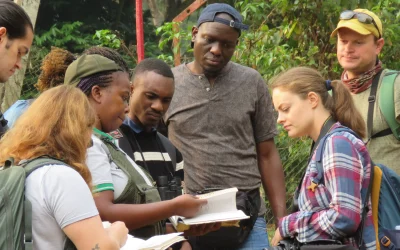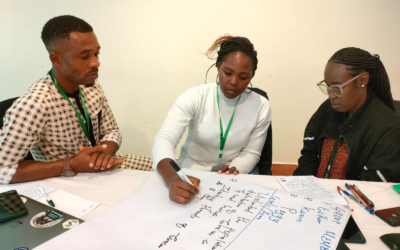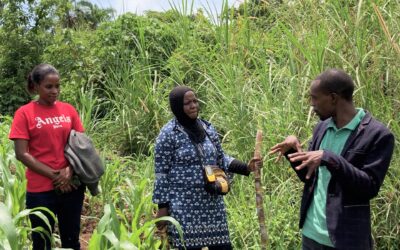The Tropical Biology Association has successfully embedded the conservation of biodiversity and ecosystem services into British American Tobacco’s (BAT) business core and across their supply chain through a 15-year partnership with Fauna and Flora International, Earthwatch and BAT.
From influencing how farmers in Africa manage the landscape to creating BAT’s Biodiversity Policy Statement, the partnership has tackled some of the challenging issues facing agricultural landscapes. It has improved farmer livelihoods, increased biodiversity and increased the sustainability of agriculture.
Speaking as part of a panel of sustainability experts at a celebration event in London on November 19th, Rosie Trevelyan, Director of the Tropical Biology Association said that the partnership had built the capacity of business and farmers to practice sustainable agriculture, which would benefit both: “The Partnership may be ending, but the tools we developed live on. The Biodiversity Risk and Opportunity Assessment Tool (BROA), for example, is an action and monitoring plan, which helps companies with agricultural supply chains assess and address their risks and opportunities.”
Another member of the panel, Professor Kathy Willis – Director of Science at the Royal Botanical Gardens, Kew – stated that the “biggest threat to biodiversity is poverty.” She highlighted the success of TBA’s ongoing Uganda project – a key element of the partnership – which is focused on improving farmer livelihoods as well as protecting biodiversity and ecosystem services. Panellists Tony Juniper, Sustainability Expert and Anna Swaithes, Director of Sustainable Development, SAB Millar agreed that increasing farmer livelihoods was essential. The panel went on to discuss the roles global business and NGO (civil society) partners play in shaping agricultural landscapes and livelihoods.
TBA’s Key Partnership Achievements:
- Farmer livelihoods improved – income generation for over 200 farmers through initiatives (honey, fruit and agro-forestry) and improved marketing and business skills
- Two Wetland Management Plans – securing important resources for local communities
- Over 2,000 hectares of critical habitats restored (forest reserves, river buffers and wetlands)
- Fuelwood usage reduced by over 50% in two years, through development and sales of fuel efficient stoves – reducing pressure on native forests
- BROA tool developed and rolled out for agri-business to use free of charge
- District and national government level engagement – replicating strategies to improve agricultural sustainability in Uganda
- New biodiversity data provided for National Government – contribution to Convention on Biological Diversity (CBD) database
- Sustainable production of crops and improved security of supply
- Strong base of regional expertise: benefitting agribusiness, academia and NGOs through provision of employees, researchers and consultants
For more information on the partnership or how TBA can help businesses with agricultural supply chains please contact:
Cheryl-Samantha Owen Tel: +44 (0) 1223 336672/19
Tropical Biology Association Email: cherylsamantha.owen@tropical-biology.org
Corporate Programme Manager
Business and Biodiversity
Department of Zoology,
Downing Street, Cambridge CB2 3EJ,
UK




